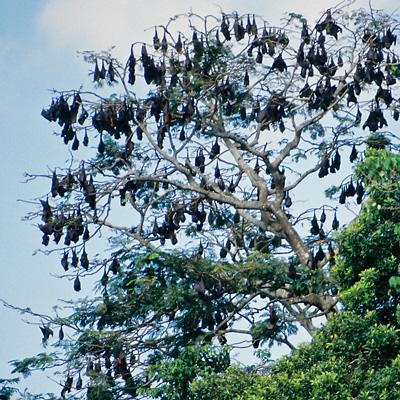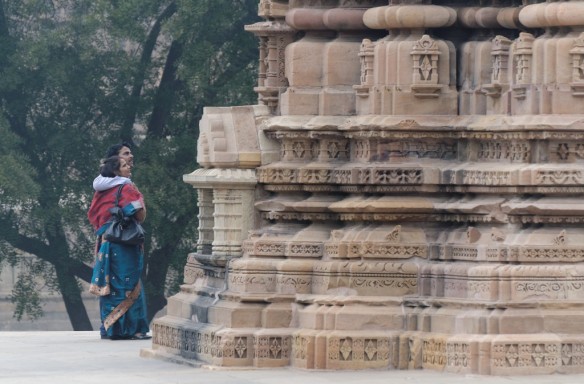Margaret Hamilton was born on December 9, 1902 in Cleveland, Ohio. She appeared on-screen with W.C. Fields, Abbott and Costello, and Buster Keaton. She’s gone down in film history for her distinct voice and terrifying depiction of the Wicked Witch of the West/Almira Gulch in film The Wizard of Oz. The book The Wonderful Wizard of Oz first appeared in print on May 17, 1900; the film premiered on August 12, 1939.
Ms. Hamilton was devoted to public education (she was a former schoolteacher) and to the welfare of children and animals. In her honor I am reprinting one of my very first posts, about L. Frank Baum, bats, and monkeys. — Jadi
Both sides of my family hail from the Northeast. We lived for a while in Cazenovia, one of the most beautiful small towns in upstate NY. Caz is just a few miles from Chittenango Falls, and that town was the birthplace of L. Frank Baum, author of The Wizard of Oz.
My sisters and I first saw The Wizard of Oz film on an old black and white television set we called Lucille. Lucille was temperamental (“Dad! Lucille’s on the fritz again!”), but her screen was big.
It was years before I finally saw The Wizard of Oz on a color television. How I gasped when Dorothy opened that door and stepped out into Munchkin Land! But in color or black and white, to this day I don’t much like monkeys.

Some years ago my husband and I traveled to Bali. The Balinese fill their temples with statues of the strange half-bird, half-god creature known as Garuda, a lion-like Barong, lots of sinuous snakes, and Hanuman the monkey god. The cultural heart of Bali is Ubud, home to the Monkey Forest which contains the Monkey Temple. I wrapped a sarong around my waist before we entered to show respect, and I know I was curious as to what we’d find.
The temple grounds were filled – no, overrun – with crab-eating macaque (Macaca fascicularis) monkeys. Dozens of them rested on the platforms to the Pura Dalem Agung Padangtegal temple. Many more watched us from up in the canopy of thick jungle trees and vines. Worst of all, a horde of monkeys scampered our way as we drew near. They were used to people and accustomed to visitors who bring them food. We walked slowly, not making any sudden movements, keeping our arms stretched out with our hands opened. I hoped my empty palms signaled: no food here!

I breathed a huge sigh of relief when we left the grounds. But I wonder about the sanity (to say nothing of the later health) of tourists who bring bananas and fruit to hand to the macaques. Those critters are feral!
Bali has another indigenous species: bats.

A huge colony of the largest fruit eating bats I have ever seen, all with wingspans of an easy three feet, hung upside down in a very tall tree. I was horrified by their size.
Then they began flying. In the middle of the day. Bright tropical sun highlighted the reddish membranes of their webbed skins. They flew in loops, more and more gigantic bats, circling lower. I began to feel dizzy as a scratchy voice in my head murmured, “I’ll get you, my little pretty …”
Macaques and bats had morphed together into L. Frank Baum’s flying monkeys. Never underestimate the power of imagination in children…or adults. That movie scene still haunts me. Like I said, to this day I don’t much like monkeys.
PS: But, do go to Bali!
In honor of Margaret Hamilton, 9 December, 1902 – 16 May, 1985
NOTES: © Jadi Campbell 2025. Previously published as Baum, Bats, and Monkeys. All photos © Uwe Hartmann. Uwe’s photos of our trips and his photography may be viewed at viewpics.de.












 I made a second trip to southern Spain. It had been over forty years between visits, and I had no idea what – if anything – I might remember. My first trip was with my high school Spanish Club. We were all young, and boy were we excited to be able to drink legally for a change!
I made a second trip to southern Spain. It had been over forty years between visits, and I had no idea what – if anything – I might remember. My first trip was with my high school Spanish Club. We were all young, and boy were we excited to be able to drink legally for a change!
 I can remember loving the symmetry. I sure don’t remember any specific part of it. As I say, my memories are a blurry recollection of warm stone walls with ingenious decorations. Just… an impression of a harmony that contains a hundred thousand details you will get lost in once you begin examining the space more closely.
I can remember loving the symmetry. I sure don’t remember any specific part of it. As I say, my memories are a blurry recollection of warm stone walls with ingenious decorations. Just… an impression of a harmony that contains a hundred thousand details you will get lost in once you begin examining the space more closely.


 Water, water, everywhere…. The former Islamic rulers built a sophisticated system of fountains and pools. Those fountains were designed to include the sound of flowing waters, and flowers and fruit trees were planted to delight the senses with their perfumes.
Water, water, everywhere…. The former Islamic rulers built a sophisticated system of fountains and pools. Those fountains were designed to include the sound of flowing waters, and flowers and fruit trees were planted to delight the senses with their perfumes.
























